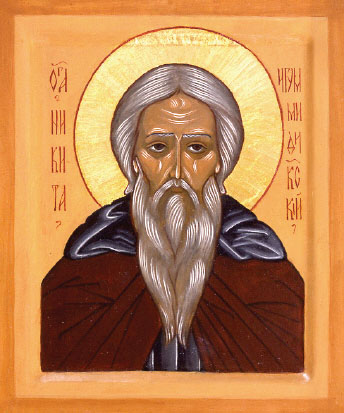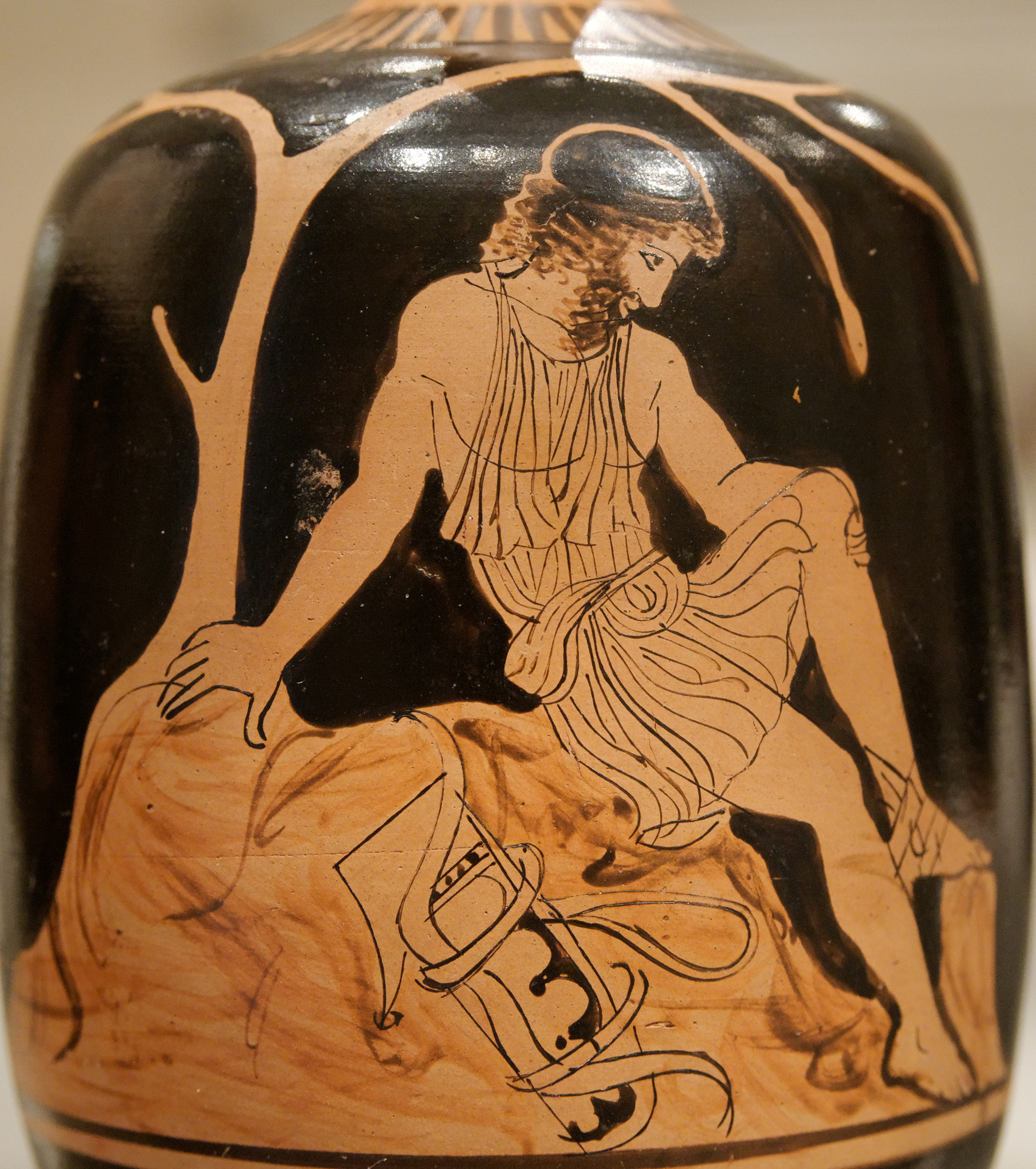|
Thrasymachus
Thrasymachus (; ''Thrasýmachos''; c. 459 – c. 400 BC) was a sophist of ancient Greece best known as a character in Plato's ''Republic''. Life, date, and career Thrasymachus was a citizen of Chalcedon, on the Bosphorus. His career appears to have been spent as a sophist at Athens, although the exact nature of his work and thought is unclear. He is credited with an increase in the rhythmic character of Greek oratory, especially the use of the paeonic rhythm in prose, and a greater appeal to the emotions through gesture. Aristophanes makes what is the most precisely dateable of references to Thrasymachus, in a passing joke from a lost play dated to 427 BC. Nils Rauhut of the Internet Encyclopedia of Philosophy concludes from this passage that Thrasymachus must have been teaching in Athens for several years before this point. A fragment from Clement of Alexandria provides some further context by contrasting Thrasymachus with the Macedonian Archelaus. "And while Euripides s ... [...More Info...] [...Related Items...] OR: [Wikipedia] [Google] [Baidu] |
Republic (Plato)
The ''Republic'' (; ) is a Socratic dialogue authored by Plato around 375 BC, concerning justice (), the order and character of the just city-state, and the just man. It is Plato's best-known work, and one of the world's most influential works of philosophy and Political philosophy, political theory, both intellectually and historically. In the dialogue, Socrates discusses with various Classical Athens, Athenians and foreigners the meaning of justice and whether the just man is happier than the unjust man.In ancient times, the book was alternately titled ''On Justice'' (not to be confused with the spurious dialogue of the On Justice, same name). He considers the natures of existing regimes and then proposes a series of hypothetical cities in comparison, culminating in Kallipolis (), a utopian city-state ruled by a class of philosopher-kings. They also discuss ageing, love, theory of forms, the immortality of the soul, and the role of the philosopher and of poetry in soci ... [...More Info...] [...Related Items...] OR: [Wikipedia] [Google] [Baidu] |
Theodorus Of Byzantium
Theodorus () was a Greek sophist and orator of the late 5th century BCE, born in Byzantium. Theodorus is noted by Plato in his ironic survey of oratory in the '' Phaedrus'' for mentioning "confirmation and further confirmation," and calls Theodorus "that most excellent artist in words." Phaedrus responds in turn by calling Theodorus "worthy." Quintillian references Plato's usage in his history of Oratory in the third book of the ''Instiutio Oratoria''. The Loeb translation of the passage gives us the perhaps more appropriate reading of "word-artificer" for Plato's witticism. Diogenes Laërtius refers to him in a similarly cursorial manner. Aristotle places him beside Tisias and Thrasymachus as the key movers in the history of rhetoric. Quoting the W. A. Pickard-Cambridge text: "For it may be that in everything, as the saying is 'the first start is the main part'... This is in fact what has happened in regard to rhetorical speeches and to practically all the other arts: for those ... [...More Info...] [...Related Items...] OR: [Wikipedia] [Google] [Baidu] |
Sophist
A sophist () was a teacher in ancient Greece in the fifth and fourth centuries BCE. Sophists specialized in one or more subject areas, such as philosophy, rhetoric, music, athletics and mathematics. They taught ''arete'', "virtue" or "excellence", predominantly to young statesmen and nobility. The arts of the sophists were known as sophistry and gained a negative reputation as tools of arbitrary reasoning. "Sophistry" is today used as a pejorative for a superficially sound but intellectually dishonest argument in support of a foregone conclusion. Etymology The Greek word is related to the noun . Since the times of Homer, it commonly referred to an expert in his profession or craft. Charioteers, sculptors, or military experts could be referred to as in their occupations. The word has gradually come to connote general wisdom and especially wisdom in human affairs such as politics, ethics, and household management. This was the meaning ascribed to the Greek Seven Sages of 7 ... [...More Info...] [...Related Items...] OR: [Wikipedia] [Google] [Baidu] |
Chalcedon
Chalcedon (; ; sometimes transliterated as ) was an ancient maritime town of Bithynia, in Asia Minor, Turkey. It was located almost directly opposite Byzantium, south of Scutari (modern Üsküdar) and it is now a district of the city of Istanbul named Kadıköy. The name ''Chalcedon'' is a variant of Calchedon, found on all the coins of the town as well as in manuscripts of Herodotus's '' Histories'', Xenophon's '' Hellenica'', Arrian's '' Anabasis'', and other works. Except for the Maiden's Tower, almost no above-ground vestiges of the ancient city survive in Kadıköy today; artifacts uncovered at Altıyol and other excavation sites are on display at the Istanbul Archaeological Museum. The site of Chalcedon is located on a small peninsula on the north coast of the Sea of Marmara, near the mouth of the Bosphorus. A stream, called the Chalcis or Chalcedon in antiquity William Smith, LLD, ed. (1854). '' Dictionary of Greek and Roman Geography''"Chalcedon" and now known as ... [...More Info...] [...Related Items...] OR: [Wikipedia] [Google] [Baidu] |
Angie Hobbs
Angela Hunter "Angie" Hobbs (born 12 June 1961) is a British philosopher and academic, who specialises in Ancient Greek philosophy and ethics. She is Professor of the Public Understanding of Philosophy at the University of Sheffield. Early life and education Hobbs was born on 12 June 1961 in Rudgwick, Sussex, England. She was educated at The College of Richard Collyer, a state school in Horsham, West Sussex. In 1980, Hobbs matriculated into New Hall, Cambridge (now Murray Edwards College, Cambridge). She studied classics, and graduated from the University of Cambridge with a Bachelor of Arts (BA) degree in 1983. She won two prizes during her undergraduate studies: the Park Prize for Classics (awarded by New Hall), and the Henry Arthur Thomas Travel Exhibition (awarded by the Faculty of Classics). As per tradition, her BA was promoted to a Master of Arts (MA Cantab) degree in 1986. She gained a PhD in Classical Philosophy (Cambridge). Academic career After a Research Fellow ... [...More Info...] [...Related Items...] OR: [Wikipedia] [Google] [Baidu] |
Herodicus
Herodicus () was a 5th century BC Greek physician, dietician, sophist, and gymnastic master (παιδοτρίβης). He was born in the city of Selymbria, a colony of the city-state Megara, and practiced medicine in various Greek cities including Selymbria, Megara, Athens, and Cnidos. Herodicus believed that exercise and a good diet are key foundations of health, and emphasized the use of both to treat various ailments. He may have also been one of the tutors of Hippocrates. He also recommended massage using beneficial herbs and oils.Early American Manual Therapy (Version 5.0) - Chapter 1 History and Development of Mechanical Vibration Therapy , Accessed: October 6, 2008. "In the 5th century Herodicu advocated exercise the treatment ... [...More Info...] [...Related Items...] OR: [Wikipedia] [Google] [Baidu] |
Philoctetes
Philoctetes ( ''Philoktētēs''; , ), or Philocthetes, according to Greek mythology, was the son of Poeas, king of Meliboea (Magnesia), Meliboea in Thessaly, and Demonassa or Methone (Greek myth), Methone. He was a Greek hero, famed as an archer, and a participant in the Trojan War. Philoctetes was the subject of four different plays of ancient Greece, each written by one of the three major Greek tragedians. Of the four plays, Sophocles' ''Philoctetes (Sophocles play), Philoctetes'' is the only one that has survived. Sophocles' ''Philoctetes at Troy'', Aeschylus' ''Philoctetes (Aeschylus play), Philoctetes'' and Euripides' ''Philoctetes (Euripides play), Philoctetes'' have all been lost, with the exception of some fragments. Philoctetes is also mentioned in Homer's ''Iliad'', Book 2, which describes his exile on the island of Lemnos, his being wounded by snake-bite, and his eventual recall by the Greeks. The recall of Philoctetes is told in the lost epic ''Little Iliad'', where h ... [...More Info...] [...Related Items...] OR: [Wikipedia] [Google] [Baidu] |
Simile
A simile () is a type of figure of speech that directly ''compares'' two things. Similes are often contrasted with metaphors, where similes necessarily compare two things using words such as "like", "as", while metaphors often create an implicit comparison (i.e. saying something "is" something else). However, there are two schools of thought regarding the relationship between similes and metaphors. The first defines them as opposites, such that a statement cannot be both a simile and a metaphor — if it uses a comparison word such as "like" then it is a simile; if not, it is a metaphor. The second school considers metaphor to be the broader category, in which similes are a subcategory — according to which every simile is also a metaphor (but not vice-versa). These two schools reflect differing definitions and usages of the word "metaphor" and regardless of whether it encompasses similes, but both agree that similes always involve a direct comparison word such as "like" or "as". ... [...More Info...] [...Related Items...] OR: [Wikipedia] [Google] [Baidu] |
Herodes Atticus
Herodes Atticus (; AD 101–177) was an Athenian rhetorician, as well as a Roman senator. A great philanthropic magnate, he and his wife Appia Annia Regilla, for whose murder he was potentially responsible, commissioned many Athenian public works, several of which stand to the present day. He was one of the best-known figures of the Antonine Period, and taught rhetoric to the Roman emperors Marcus Aurelius and Lucius Verus, and was advanced to the consulship in 143. His full name as a Roman citizen was Lucius Vibullius Hipparchus Tiberius Claudius Atticus Herodes. According to Philostratus, Herodes Atticus, in possession of the best education that money could buy, was a notable proponent of the Second Sophistic. Having gone through the '' cursus honorum ''of civil posts, he demonstrated a talent for civil engineering, especially the design and construction of water-supply systems. The Nymphaeum at Olympia was one of his dearest projects. However, he never lost sight of p ... [...More Info...] [...Related Items...] OR: [Wikipedia] [Google] [Baidu] |
Tisias
Corax (, ''Korax''; fl. 5th century BC) was one of the founders (along with Tisias) of ancient Greek rhetoric. Some scholars contend that both founders are merely legendary personages, others that Corax and Tisias were the same person, described in one fragment as "Tisias, the Crow" (''corax'' is ancient Greek for "crow"). And according to Aristotle, Empedocles was the actual founder of rhetoric, but this is also unlikely. It is believed that William Shakespeare derived the name Sycorax from Corax of Syracuse. Corax is said to have lived in Sicily, Magna Graecia, in the 5th century BC, when Thrasybulus, tyrant of Syracuse, was overthrown and a democracy formed. Contributions to rhetorical study Corax originated some of the basic principles and laid the groundwork for the Greek scholars to follow – particularly Socrates, Plato, and Aristotle. They took these properties and applied them to other rhetorical uses, particularly in government. However, Corax developed these meth ... [...More Info...] [...Related Items...] OR: [Wikipedia] [Google] [Baidu] |
Sophistical Refutations
''Sophistical Refutations'' (; ) is a text in Aristotle's ''Organon'' in which he identified thirteen fallacies.Sometimes listed as twelve. According to Aristotle, this is the first work to treat the subject of deductive reasoning in ancient Greece (''Soph. Ref.'', 34, 183b34 ff.). Overview ''On Sophistical Refutations'' consists of 34 chapters. The book naturally falls in two parts: chapters concerned with tactics for the Questioner (3–8 and 12–15) and chapters concerned with tactics for the Answerer (16–32). Besides, there is an introduction (1–2), an interlude (9–11), and a conclusion (33–34). Fallacies identified The fallacies Aristotle identifies in Chapter 4 (formal fallacies) and 5 (informal fallacies) of this book are the following: :Fallacies in the language or formal fallacies (''in dictionem''): # Equivocation # Amphiboly # Composition # Division # Accent # Figure of speech A figure of speech or rhetorical figure is a word or phrase that intentiona ... [...More Info...] [...Related Items...] OR: [Wikipedia] [Google] [Baidu] |





